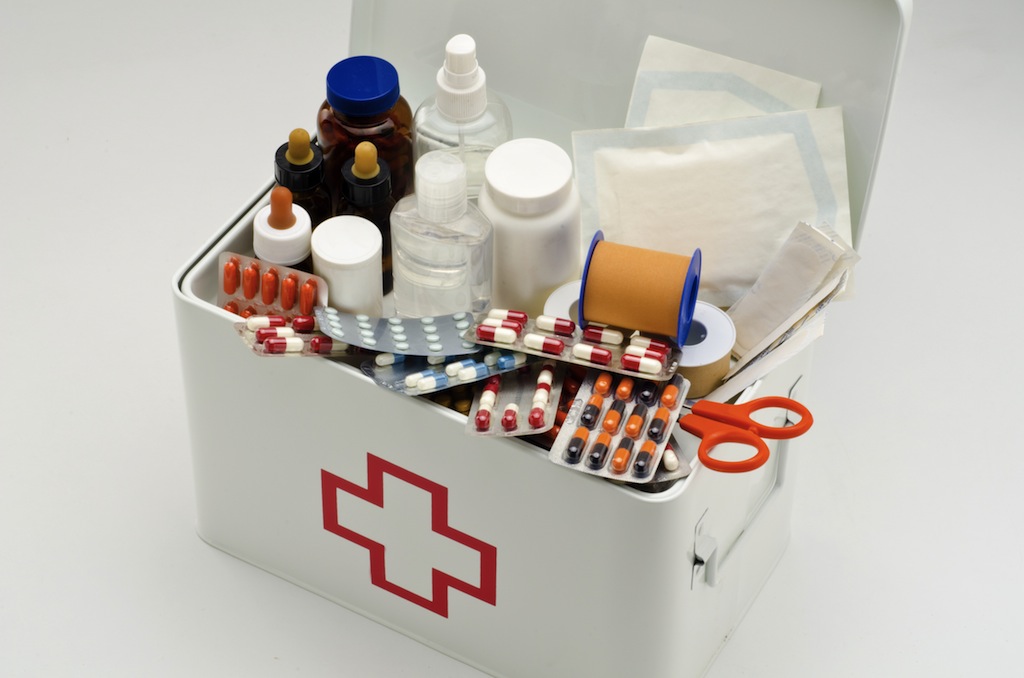 A well-stocked first-aid kit can allow you to respond adequately to common injuries and emergencies and be prepared for these when they occur.
A well-stocked first-aid kit can allow you to respond adequately to common injuries and emergencies and be prepared for these when they occur.
Falls, stings, burns and cuts can ruin your day and, when they aren’t taken care of, may cause longer term issues. Infections can easily spread from small cuts whilst other medical emergencies may require immediate attention.
Given the importance of your first aid kit this should be stored somewhere safe and easy to reach. You can purchase different kits in various stores and pharmacies but depending on your needs and activities you may wish to assemble your own. Regardless, a basic kit should include the following:
Common Items
1. Antiseptic wipes such as Azo Wipes to clean cuts, grazes and surrounding areas.
2. Waterproof adhesive plasters in various sizes for covering wounds and protecting these from dirt and bacteria.
3. Wound dressings and surgical tape such as Micropore surgical tape, to protect bigger wounds and cuts. These coverings will allow wounds to breathe whilst simultaneously protecting them from infection.
4. Crepe bandages. These bandages are cheaper than support straps for different body parts and they can be wrapped and applied to support sprains in different locations.
5. Medical scissors for cutting tape, plasters and bandages.
6. Tweezers for removing small objects, like splinters.
7. Medical gloves to protect infections from bacterial contamination and further damage to any wounds.
8. A foil blanket to keep someone warm in case of an accident and the prevent onset of shock.
Medication
1. Pain and fever medicines. Have something like aspirin or ibuprofen available. Whether it’s a toothache or a headache simple pain relief can help get you through the day before you receive medical attention.
2. Antihistamines. If you are prone to allergic reactions keep some anti-histamines in your medicine box to prevent avoidable discomfort.
3. Decongestants. To treat stuffy noses and provide relief from cold.
4. Anti-nausea medicine to treat motion sickness and combat other causes of nausea.
5. Anti-diarrhoea medicine may help prevent serious dehydration.
6. Laxatives to treat constipation.
7. Antacids to treat heartburn and indigestion.
Think about your own needs specifically. Are you likely to have, or know someone else prone to asthma attacks? Are you highly allergic to bee stings or prone to certain types of infections? You may want to keep supplies for these eventualities. Considering your needs will help you to adequately prepare for them beforehand.
Finally, keep an eye on your first-aid kit and make sure that you don’t run out of supplies. Always look out for expiration dates on products and replace them as required.